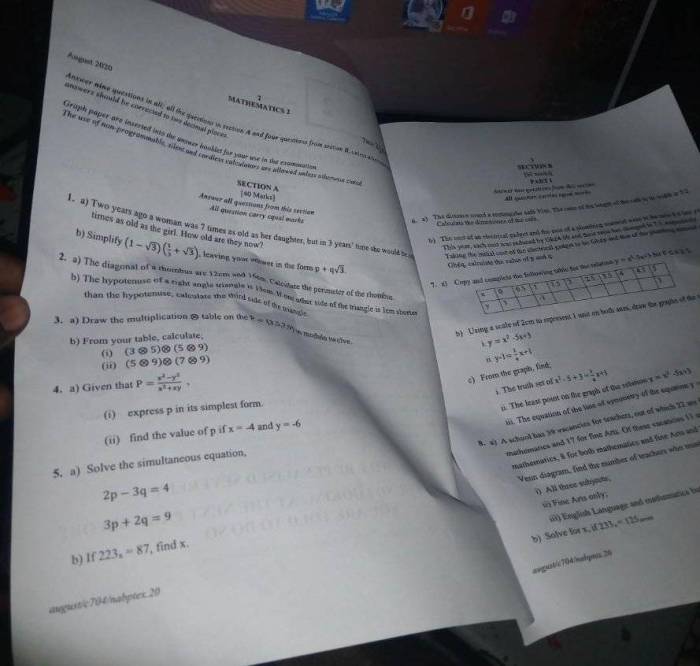Gce past questions on economics 2017 – Unveiling the secrets to success in GCE Economics 2017, this guide empowers students with a thorough exploration of past questions. By delving into the intricacies of key concepts, exam strategies, and effective revision techniques, it provides an invaluable roadmap for achieving academic excellence.
GCE past questions serve as a cornerstone for exam preparation, offering a glimpse into the minds of examiners and revealing the patterns and trends that shape the assessment. This guide unravels the significance of past questions, tracing their evolution and highlighting their indispensable role in understanding the subject matter.
GCE Past Questions on Economics 2017: An Overview

GCE past questions are invaluable resources for economics students preparing for their exams. They provide insights into the structure, format, and key concepts tested in the exam, enabling students to tailor their revision and practice accordingly.
The GCE past questions have evolved over time, reflecting changes in the economics curriculum and assessment objectives. Analyzing past questions helps students identify recurring patterns, common question types, and the depth of understanding required for success.
Identifying Key Concepts and Themes
The 2017 GCE past questions cover a wide range of economic concepts, including:
| Key Concept | Sub-Concepts | Past Question Examples |
|---|---|---|
| Demand and Supply | Price elasticity, market equilibrium, consumer and producer surplus | Q1 (b) 2017 Paper 1 |
| National Income and Economic Growth | GDP, unemployment, inflation, fiscal and monetary policy | Q3 2017 Paper 2 |
| International Trade | Comparative advantage, tariffs, exchange rates | Q5 (b) 2017 Paper 1 |
These concepts are often interconnected, and past questions test students’ ability to apply multiple concepts to analyze economic scenarios.
Exam Question Analysis
The 2017 GCE past papers include a variety of question types:
| Question Type | Frequency | Common Formats |
|---|---|---|
| Multiple Choice | 20% | True/False, Best Answer |
| Short Answer | 40% | Define, Explain, Discuss |
| Essay | 40% | Evaluate, Analyze, Compare and Contrast |
Understanding the distribution and format of question types helps students allocate their study time effectively.
Case Study and Data Analysis
Case studies and data analysis are essential components of GCE economics exams. Past questions often present real-world scenarios or data sets that students must analyze and interpret using economic concepts.
For example, Q2 (b) 2017 Paper 2 required students to analyze a case study on the impact of a minimum wage on employment and discuss the potential benefits and drawbacks.
Revision and Practice Strategies
- Identify key concepts and themes from past questions.
- Practice answering different question types under timed conditions.
- Use past questions to identify areas for improvement and focus revision accordingly.
- Engage in group discussions or online forums to share insights and learn from others.
Resources and Further Reading, Gce past questions on economics 2017
- GCE Past Papers: www.cambridgeinternational.org
- Economics Textbooks: Mankiw, Krugman, Varian
- Online Forums: Reddit /r/economics, Stack Exchange /economics
Questions Often Asked
What is the significance of GCE past questions?
GCE past questions provide invaluable insights into the exam format, question types, and key concepts tested, enabling students to tailor their preparation and maximize their chances of success.
How can I effectively analyze past questions?
Effective analysis involves identifying key concepts, understanding the interconnections between them, and examining the distribution and frequency of various question types. This helps students develop a comprehensive understanding of the subject matter and anticipate potential exam questions.
What are some effective revision strategies using past questions?
Past questions can be used for targeted revision by identifying areas of strength and weakness. Timed practice exams simulate exam conditions and enhance time management skills. Additionally, discussing past questions with peers or tutors can foster deeper understanding and reinforce key concepts.

